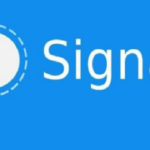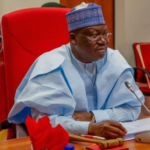Petrol price has once again become a topic of discussion in Nigeria after the recent price hike, leading to several protests across the country and serious backlash at the Federal Government.
The Federal Government in its latest action on the in the issue of petrol price said it will no longer be releasing guiding price bands for the sale of petrol at filling stations across the nation; hence, oil marketers are now free to fix prices.
Have you read?
- New Electricity Tariff system explained – know your Band
- Buhari says there is no provision for fuel subsidy in the revised 2020 budget
- 13 power plants shut, Discos reject 8,733.39MW in one week
This was stated by Abdulkadir Saidu the Executive Secretary of Petroleum Products Pricing Regulatory Agency (PPPRA) while responding to questions from journalists during a briefing at the headquarters, he stated that going forward, petrol price would be determined by the forces of demand and supply and the international cost of crude oil according to Punch report.
He noted that based on this and the deregulation of the downstream sector, the PPPRA would no more be involved in price-fixing.
“The PPPRA remains a regulator in the downstream sector of the oil industry, but the difference now is that we do not indicate that this is the price that you must sell because if you do that, it is price-fixing,” Saidu said.
The PPPRA boss, who was represented by the agency’s General Manager, Administration, and Human Resources, Victor Shidok, confirmed that oil marketers were not importing petrol because of the scarcity of foreign exchange.
He stated that petrol importation into Nigeria was solely done by the Pipelines and Product Marketing Company (PPMC), a subsidiary of the Nigerian National Petroleum Corporation (NNPC).
On whether the PPMC was now the sole determiner of the petrol price being the only importer of the commodity, the regulator insisted that other marketers were free to also import petrol.
He, however, noted that the role of PPPRA would be to ensure that oil marketers do not profiteer, as every petrol dealer was, henceforth, free to source for the product and fix their prices.
“This, however, must be in accordance with our code of conduct because as the regulator, it is our duty to protect the consumer and operators must abide by our codes,” Saidu stated.
On March 19, 2020, the government, through the Petroleum Products Pricing Regulatory Agency, commenced what it called a petrol pricing regime, whereby it releases bands showing upper and lower limits for the pump price of petrol monthly.
It released petrol price bands for about three months although some operators faulted the decision as they claimed it did not speak well of a deregulated downstream oil sector.
PPPRA, however, did not issue price guidelines for the months of August and September.
Written by;
Ifunanya Ikueze
























































